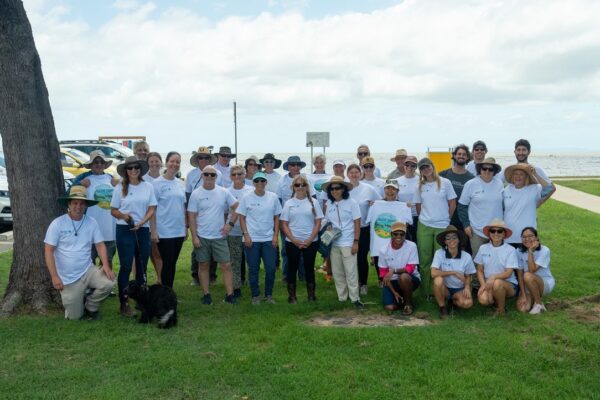Since we did our Weekly Communications Round Up on Monday this week, I thought I’d take a closer look at an interesting meme circulating through the climate change blogosphere: risk.
There is a lot of talk about belief in climate change. All you have to do is look through our past Communications Round Ups and you’ll see new poll or survey results on how the public’s attitude towards climate change is fluctuating. This is definitely important – but do we focus too much on belief? After all, we know that climate change belief is heavily influenced by the weather, and that altering knowledge or attitudes often has no effect on behavior.
So instead of framing climate change as a “belief in the science” issue, why not focus on something we can all agree on: minimizing risk. But how?
OpEd: Risk is a better focus for seeking action on climate change
An interesting Op-Ed born from a segmentation survey of 1,000 professional engineers and geologists. The author suggests moving the focus off of “bitter political divisions” and onto practical risks to business and the economy.
Environmental threats could push billions into extreme poverty
A new report from the UN emphasizes the risk of not addressing climate change by highlighting how many good improvements have been made in recent years – and how easily they can be lost. This can help to reframe inaction as a risky choice, and makes the gains which may be lost less ambiguous.
Your Brain on Natural Hazards
An interesting ClimateAccess article by Courtney St. John at CRED reviews the public’s failure to accurately assess the risk of Hurricane Sandy, possibly largely due to the mild Hurricane Irene last year. She asks: how can we better communicate risks, even when exact impacts may be fuzzy? We need to engage both the experiential system and analytic system of the brain when we communicate risks.
What more needs to be done?
The science of communicating climate change risks is still in its infancy. This paper entitled The role of social and decision sciences in communication uncertain climate risks lays out the urgent need for more research.
Lastly, check out ClimateAccess’s collection of Risk Communication Resources. Always lots of good stuff there.
There is a lot of talk about belief in climate change. All you have to do is look through our past Communications Round Ups and you’ll see new poll or survey results on how the public’s attitude towards climate change is fluctuating. This is definitely important – but do we focus too much on belief? After all, we know that climate change belief is heavily influenced by the weather, and that altering knowledge or attitudes often has no effect on behavior.
So instead of framing climate change as a “belief in the science” issue, why not focus on something we can all agree on: minimizing risk. But how?
OpEd: Risk is a better focus for seeking action on climate change
An interesting Op-Ed born from a segmentation survey of 1,000 professional engineers and geologists. The author suggests moving the focus off of “bitter political divisions” and onto practical risks to business and the economy.
Environmental threats could push billions into extreme poverty
A new report from the UN emphasizes the risk of not addressing climate change by highlighting how many good improvements have been made in recent years – and how easily they can be lost. This can help to reframe inaction as a risky choice, and makes the gains which may be lost less ambiguous.
Your Brain on Natural Hazards
An interesting ClimateAccess article by Courtney St. John at CRED reviews the public’s failure to accurately assess the risk of Hurricane Sandy, possibly largely due to the mild Hurricane Irene last year. She asks: how can we better communicate risks, even when exact impacts may be fuzzy? We need to engage both the experiential system and analytic system of the brain when we communicate risks.
What more needs to be done?
The science of communicating climate change risks is still in its infancy. This paper entitled The role of social and decision sciences in communication uncertain climate risks lays out the urgent need for more research.
Lastly, check out ClimateAccess’s collection of Risk Communication Resources. Always lots of good stuff there.



